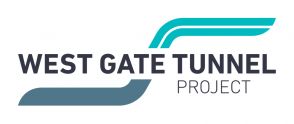Who made this decision?
Transurban and its builder CPB John Holland Joint Venture are responsible for managing soil excavated as part of the project. Following its tender process, CPB John Holland Joint Venture recommended the Hi-Quality facility as the preferred site after an assessment of proposals from three sites.
To enable tunnelling to get underway as soon as possible, Transurban will advance funding so construction can commence at Hi Quality’s facility, which is expected to generate up to 200 additional jobs and take around six and a half months.
Why was Hi-Quality chosen as the preferred site particularly when there has been so much community opposition?
The Hi-Quality site was chosen as the preferred site by Transurban’s builder CPB John Holland Joint Venture following a comprehensive assessment of three potential sites as part of its tender.
Hi-Quality has decades of experience running landfill operations safely and responsibly.
The site already has existing licenses to accept soil with levels of PFAS in it in their existing Category C cells. Hi-Quality will be required to meet strict planning and environmental requirements to ensure the safe transportation, storage and containment of the soil and that the site operates in a way that minimises the impact on the surrounding community and environment.
The Minister for Planning considered the views of the community and of Hume City Council in his decision. Based on the review of Hi-Quality’s application, concerns raised by submitters and Council can be mitigated through conditions placed on the planning approval in conjunction with the requirements of the environmental management plan approved by the EPA.
What will happen with the unsuccessful sites at Bacchus Marsh and Ravenhall and a back-up site?
The Hi-Quality facility has been designed to manage and dispose of all of the tunnel soil excavated by the tunnel boring machines. There are no agreements in place with either Maddingley Brown Coal in Bacchus Marsh, Cleanaway in Ravenhall, or at Wyndham Vale to manage tunnel soil from the project.
Some people have complained that the Hi Quality site isn’t suitable to take this soil?
Hi-Quality is already an existing Category C waste facility and regularly accepts material of this type.
Hi-Quality, through the planning and environmental approvals, has shown they can manage the soil safely and responsibly, and to a standard that far exceeds what’s required for the likely low contamination levels of the soil – with minimal impact to the community and the environment.
Why can’t tunnel boring soil be disposed of at existing landfills?
The soil generated from tunnel boring can exceed the rate of waste acceptance of Victoria’s existing landfills and significantly reduce the future capacity of these landfills.
The West Gate Tunnel Project alone is due to create 1.5 million m3 of soil from the tunnel alignment over an 18-month period. Landfills in Victoria cannot absorb this volume of soil within an 18-month period, without exhausting existing capacity.
In addition, the tunnel soil will be wet and requires a large area to spread out to aid dewatering prior to deposit in a cell – the space and infrastructure is not available at most landfills. Most landfill cells have relatively small operating ‘tipping faces’ where wastes are placed.
Is contaminated soil from the West Gate Tunnel Project already being taken to the Hi-Quality site?
Hi-Quality has taken large volumes of waste material including non-contaminated and contaminated soil from major infrastructure projects since 2003. Under their existing licence, they have been taking some material from major infrastructure projects, including other parts of West Gate Tunnel Project.
Will Hi-Quality be the preferred site to collect soil for all major projects going forward?
Hi-Quality’s site is being purpose-built for the West Gate Tunnel Project. The site’s planning and environmental approvals also relate only to the West Gate Tunnel Project.
What happens if there is a breach of compliance by Hi-Quality?
In accordance with its Compliance and Enforcement Policy, EPA will take consistent, transparent and proportionate action if Hi-Quality fail to meet their regulatory obligations. Compliance is monitored and breaches are detected through a range of methods including inspections undertaken by EPA officers; intelligence from EPA drone flights; community, employee or duty holder reports and observations; and reports from other agencies or regulatory authorities.
Will an independent Environmental Auditor be appointed to provide regular reports?
The Environmental Management Plan (EMP) and other requirements of the TBM Regulations must be complied with and are enforceable with severe penalties. EPA officers can visit the site at any time without notice.
The Hi-Quality site already has other EPA licensed activities ongoing. This means EPA inspectors visit regularly, annual reporting is required, and auditing is ongoing. This will continue with the soil processing facility being constructed.
Furthermore, Hi Quality has appointed an EPA accredited auditor and independent geotechnical specialist to verify the facility is constructed in accordance with the requirements of the approved EMP and detailed design documents. In addition, the independent verifier will prepare a verification report for the EPA on six monthly basis to check TBM spoil is being received at the site in accordance with environmental approvals.
